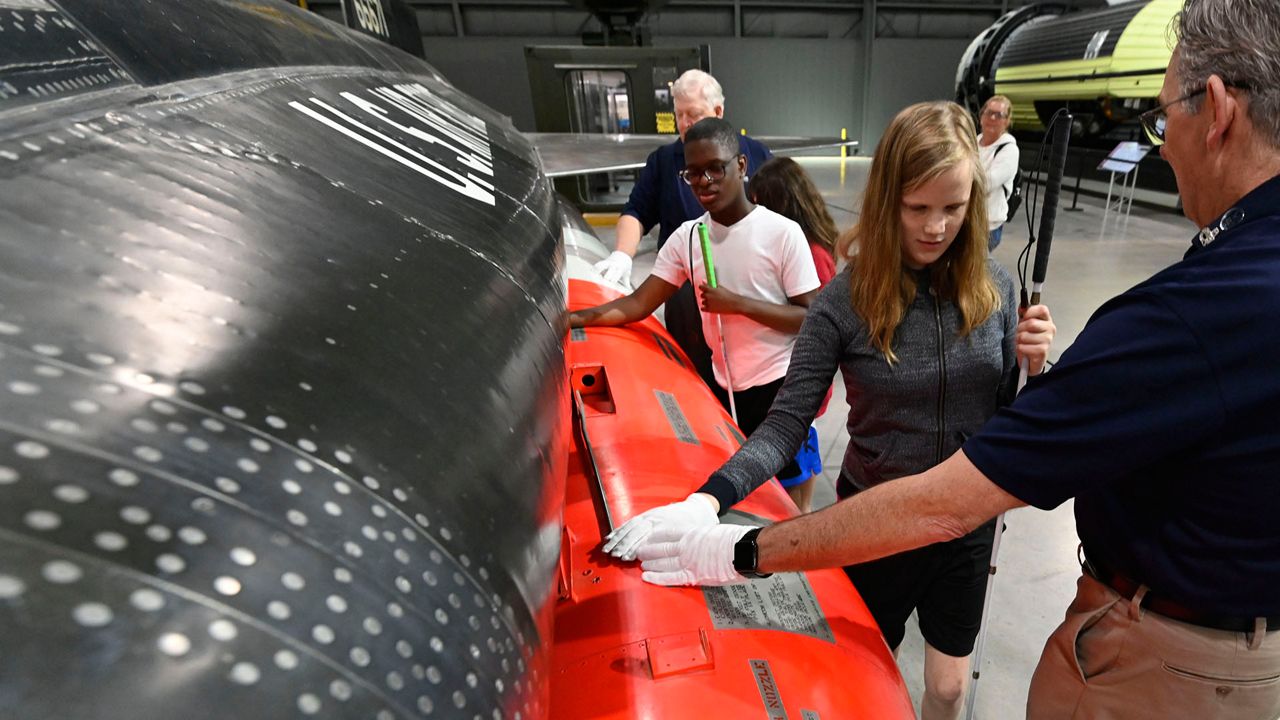Editor's Note: If you or someone you know is experiencing domestic violence, you can reach the National Domestic Violence Hotline by texting START to the number 88788 or calling 1-800-799-SAFE.
CLEVELAND — Domestic violence is a “common problem” in the United States with about one in four women and one in nine men said to experience some form of domestic violence each year, according to the National Institute of Health.
Experts say the abuse is often under-reported.
In Ohio, every sheriff’s office and police department in the state is required by law to send monthly statistics regarding domestic violence cases to the Ohio Bureau of Criminal Investigation. The latest report shows more than 61,000 Ohioans were victims in 2023, but data is missing for many agencies noted in the report for sending no or incomplete records, showing the number is likely much higher.
Domestic violence could happen to anyone. According to the U.S. Dept. of Justice, it crosses a range of demographics and affects all ages, races, sexes, socioeconomic backgrounds and education levels.
It is a situation Laura Cowan said she never imagined.
“Started somewhere new and fresh and was loving it until a little mishap occurred,” she said. “I trust people so much.”
The native Clevelander said she was ready to trade the snow for some sunshine and drove cross-country to find a California dream but found a nightmare.
“It reminds me of the ‘Wizard of Oz,’” she said. “There’s no place like home. So, I clicked my heels three times and went back to Cleveland.”
Cowan and her young children lived through one of the most notorious abuse cases in California history. Part of her experience now plays out on the screen in the Lifetime television movie, “Girl in the Garage: The Laura Cowan Story.”
“A lot of us tend to ignore our gut feeling and just proceed on,” she said. “And that’s what I really did.”
In 1995, Cowan said her world crumbled around her when her husband was arrested and sent to federal prison for trafficking firearms.
“I had no inkling. No idea,” she said. “He kept that part away from me.”
While he was serving his five-year sentence, Cowan said she struggled to make ends meet as a single mother with a 3-year-old son and 7-month-old daughter.
She accepted an offer from a man she said she noticed with her husband in the past, who suggested she and the kids move in with his family until her husband was released.
“You don’t see it in the beginning,” she said. “You just need the help and take the help.”
She said the situation quickly turned controlling and violent, trapping Cowan and her children in nearly four years of torture and trauma.
“I was really terrified of him,” she said. “I didn’t know what he had planned. He mentioned a lot of times of killing us all.”
After several failed attempts to escape the situation, she said he “snapped” and locked her and the kids in a garage. She said the space was dark and dirty, hot in the day and cold at night. There was no bathroom. She said they were forced to use buckets and plastic bottles, and they would often go days without any food. She recalled the time a box containing a single piece of chicken was slid into the garage.
“He came back in for something, I can’t remember what it was, but I took the chicken because I didn’t want him to take it back and I hid it up underneath the little pillow on that little mat we were on,” she said. “And he went back out, and the ants were all over that piece of chicken. Just that fast. And my son was so hungry he still ate that chicken.”
Cowan said she went into survival mode. She found a legal pad and tape recorder in the garage and started recording his abuse.
“I wrote on the back, on the front,” she said. “I folded it up and would keep it in my underwear at night. Just in case he saw it. And I would take the tapes and hide them in different areas in the garage.”
When he took her to sign for a package at the post office, she took her chance and slipped the note to the clerk.
“When I took the package off the counter and we walked towards the door to leave, I looked back at her,” she said. “And she just nodded.”
Because of the note, law enforcement officers rescued Cowan and her kids in 1999.
She now works with the Cleveland Metropolitan Housing Authority as a resident services liaison offering encouragement and guidance to neighbors facing abusive or challenging situations.
“A lot of times some residents might be going through relationship issues or what have you, and if I tell them a little bit of my story, they feel a little bit relaxed because, ‘Oh, you went through that too,’ you know?” Cowan said. “Then you kind of give them solutions, what they can do.”
Her contributions are making an impact Case Manager Kristan Landrum can visibly see.
“The weight is lifted, and you can just see their, you know, like the joy of just that little push,” she said. “Because a lot of times I think what I've noticed is a lot of people don't have family, so it's just like leaning and just having that person say, ‘You can do it. Get up this morning.’”
“You have physical, emotional, mental abuse,” said LaVesha Draper, another domestic violence survivor. “You have financial abuse. And she went through all of that, you know. So, it’s not as easy as people may think it is.”
Draper said seeing Cowan not only survive the situation, but go on to thrive, shows her strength.
“Keep moving forward knowing that you can help somebody else or plant seeds because you may not see the results, you may not ever see, but just knowing that you're doing the work in the ministry that God has placed on your heart to do, and knowing your purpose, it makes it worth the while,” Draper said.
Cowan now stands and speaks out as a community activist, finding a purpose in talking about her darkest times to help light a path of hope.
“Don’t give up,” she said. “You’re not alone.”











